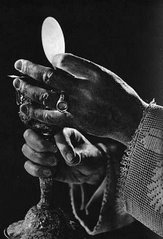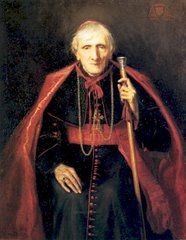How did this happen? Wormwood got lazy and let the patient read a book and take a walk. Nothing dramatic it would seem but as Screwtape says this is a very real deterent from hell.
“In other words you allowed him two real positive Pleasures. Were you so ignorant as not to see the danger of this? The characteristic of Pains and Pleasures is that they are unmistakably real, and therefore, as far as they go, give the man who feels them a touchstone of reality. Thus if you had been trying to damn your man by the Romantic method…you would try to protect him at all costs from any real pain; because, of course, five minutes’ genuine toothache would reveal the romantic sorrows for the nonsense they were and unmask your whole stratagem. But you were trying to damn your patient by the World, that is by palming off vanity, bustle, irony, and expensive tedium as pleasures. How can you have failed to see that a real pleasure was the last thing you ought to have let him meet?
In other words, those under the devil are under a disguise and falsehood. Similar to the Matrix or the cave, they will persist in their ways until shown another way. Real pleasure is that the other way, the red pill or the sun. These real pleasures strike down the façade and invite the patient to connect with reality. Reality, of course, is God. This might be a helpful tool in evangelizing. We might be well advised to help people who have fallen away from the Church connect with the real first. Show them a good movie, a pretty painting, or take a walk with them. As all pleasures are from God and God is in all things any genuine pleasure will do (note that genuine does mean in the bounds of morality). Of course, this means that C.S. Lewis is ascribing to the Ignatian ideal of God in all things. That is, Lewis is a closet Jesuit
Screwtape goes on to explain that pleasure succeeded in this way b/c created us to be in accordance with our natures (it seems Lewis is a closet Thomist as well). This creates a paradox between detaching from ourselves for His sake. He says,
“Hence, while He is delighted to see them sacrificing even their innocent Wills to His, He hates to them drifting away from their own nature for any other reason. And we should always encourage them to do so. The deepest likings and impulses of any man are the raw material, the starting point, with which the Enemy has furnished a point gained; even in things indifferent it is always desirable to substitute the standards of the world, or convention, or fashion, for a human’s own real likings and dislikings. I myself would carry this very far. I would make it a rule to eradicate from my patient any strong personal taste which is not actually a sin.”
What Screwtape is trying to convince Wormwood to do is to cause in the patient an error similar to that committed by Gerard Manley Hopkins. Hopkins, on becoming a Jesuit priest, tried to give up his poetry and writing for the sake of his order because he considered it beneath the dignity of the order. However, he soon returned to writing and because of that decision we have many inspiring poems that have helped people in the faith. If we do something well and enjoy it then we ought to pursue it. Whether it’s being among people, football, sports, music, dancing, or writing as it is in Hopkins’s case, we are given these gifts and desires in order to experience real pleasure in accordance with our nature and in order to taste of the cup from which we shall have our full of in eternal life.






No comments:
Post a Comment